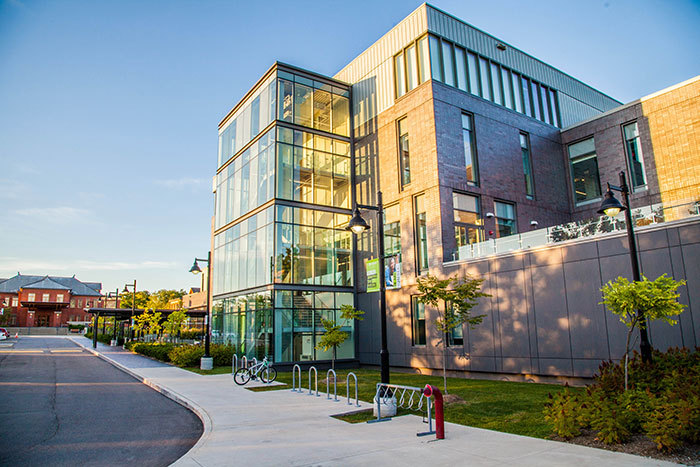
If you want to study a professional career in Canada but don’t know all the options this incredible country has to offer, then we invite you to keep reading. We were in your shoes a few years back asking ourselves this same question and many others such as how the educational system works in Canada, and if we would be able to continue our professional studies based on what we had studied in our home country.
Although we came from different places, the Canadian educational system in terms of grades and levels is very similar to our country system. Post-secondary education, which is taken after High School, encompasses both public and private education, and it is delivered by two major types of post-secondary schools: Universities and Colleges
Universities
Universities in Canada are institutions that offer academic and professional programs in many disciplines and subjects. They grant you a globally recognized degree, as well as deep knowledge and expertise in your study field. Some of these Universities occupy the first 50 places in world rankings as a result of their academic level, employee reputation, and faculty. The time it takes to complete a university program typically goes from three to four years depending on the degree level:
- Bachelor’s degree: It takes three or four years to complete a degree and the minimum requirement is to have successfully concluded high School education.
- Master’s degree: This type of program requires a bachelor’s degree, some work experience, and GMAT or GMR certification exams in order to be accepted. Their programs’ length could take between one and three years to be concluded.
- Doctoral degree: It is the most advanced degree in Canadian universities, and you may be able to complete a doctorate after three or more years of research and study.
Colleges
College are local community institutes that provide undergraduate and postgraduate degrees in specific work fields. Their programs are designed to provide specific employment skills, practical experience, and career training in fields such as business, computer and mechanical technologies, legal, health, hospitality, arts, social services, agriculture, and skilled trades.
These institutions are very attractive in the context of continuing education, especially for international students who want to complement a degree from outside Canada and find a job in a faster way. Moreover, college programs are less expensive than university degree programs, and some of them offer cooperative education experience (CO-OP) as part of the study program credits, by including one semester for professional job experience.
Colleges in Canada have four different types of programs that differ from length and expertise level:
- Certificate: it is a one-year program focused on technical skills and basic knowledge in a wide range of study fields. In order to be accepted, you are required to have successfully completed your High School studies.
- Diploma and Advanced diploma: Both programs prepare you for a specific field of work and are a little more intensive and detailed than a certificate program. The only difference between these two programs is that a college diploma takes two years, and an advanced diploma takes three years to be completed.
- Bachelor’s Degree: This program is quite similar to a university’s bachelor’s degree. However, it is more focused on technical-specific education since it combines the theoretical and critical thinking of a university with a practical work-term.
- Post-graduation Certificate: It allows you to be specialized in any subject related to your degree field. These one or two-year programs are a great option if you want to take post-graduation studies at an affordable price.
Note: Due to COVID-19 restrictions, most of the school programs in Canada are being delivered online. Restrictions can differ between provinces.
We know that studying in Canada represents a huge monetary investment, especially when coming from countries whom currency exchange rate is below the Canadian Dollar. Fortunately, many of these educational institutions offer bursaries for international students that will definitely help your budget.
Are you looking to emigrate to Canada?
We have good news! The great majority of the public Universities and Colleges are found under the Designated Learning Institution (DLI) category, so you will be able to apply for a Post-Graduation Work Permit (PGWP) after graduating and therefore to have enough time to gather more points for your Permanent Residence application.
If you would like to get more information about these institutions and how to emigrate to Canada through a study program, please send us a message or request a virtual appointment.
